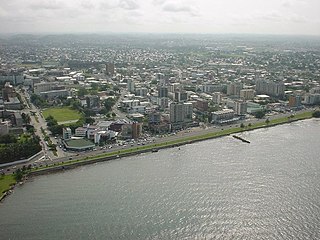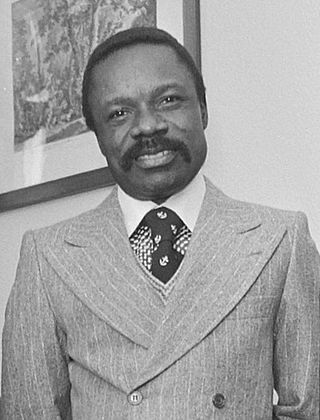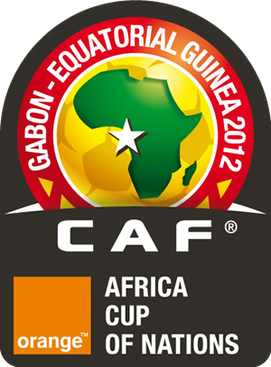Twenty-first century
Years in Africa | |
|---|---|
| Sovereign states |
|
States with limited recognition | |
Dependencies and other territories |
|
This is a timeline of History of Gabon . Each article deals with events in Gabon in a given year.

Gabon, officially the Gabonese Republic, is a country on the Atlantic coast of Central Africa, on the equator, bordered by Equatorial Guinea to the northwest, Cameroon to the north, the Republic of the Congo on the east and south, and the Gulf of Guinea to the west. It has an area of 270,000 square kilometres (100,000 sq mi) and a population of 2.3 million. There are coastal plains, mountains, and a savanna in the east. Libreville is the country's capital and the largest city.
Little is known of the history of Gabon before European contact. Bantu migrants settled the area beginning in the 14th century. Portuguese explorers and traders arrived in the area in the late 15th century. The coast subsequently became a center of the transatlantic slave trade with European slave traders arriving to the region in the 16th century. In 1839 and 1841, France established a protectorate over the coast. In 1849, captives released from a captured slave ship founded Libreville. In 1862–1887, France expanded its control including the interior of the state, and took full sovereignty. In 1910 Gabon became part of French Equatorial Africa and in 1960, Gabon became independent.

The economy of Gabon is characterized by strong links with France, large foreign investments, dependence on skilled foreign labor, and decline of agriculture. Gabon on paper enjoys a per capita income four times that of most nations of Africa, but its reliance on resource extraction industry fail to release much of the population from extreme poverty, as much of 30% of the population lives under the poverty threshold.

Libreville is the capital and largest city of Gabon. Occupying 65 square kilometres (25 sq mi) in the northwestern province of Estuaire, Libreville is a port on the Komo River, near the Gulf of Guinea. As of the 2013 census, its population was 703,904.

The president of Gabon is the head of state of Gabon. A total of three people have served as president since the post was formed in 1960.

Omar Bongo Ondimba was a Gabonese politician who was the second president of Gabon for almost 42 years, from 1967 until his death in 2009. Bongo was promoted to key positions as a young official under Gabon's first President Léon M'ba in the 1960s, before being elected vice-president in his own right in 1966. In 1967, he succeeded M'ba to become the country's second president, upon the latter's death.

The flag of Gabon is a tricolour consisting of three horizontal green, yellow and blue bands. Adopted in 1960 to replace the previous colonial flag containing the French Tricolour at the canton, it has been the flag of the Gabonese Republic since the country gained independence that year. The design of the present flag entailed the removal the Tricolour and the widening of the yellow stripe at the centre.

The Gabon national football team represents Gabon in men's international football. The team's nickname is The Panthers and it is governed by the Gabonese Football Federation. They have never qualified for the FIFA World Cup, but have qualified eight times for the Africa Cup of Nations. Gabon is a member of both FIFA and Confederation of African Football (CAF).

The prime minister of Gabon is the head of government of Gabon.

Ali Bongo Ondimba, also known as Ali Bongo and Ali Ben Bongo, is a Gabonese former politician who was the third president of Gabon from 2009 to 2023. He is a member of the Gabonese Democratic Party. He is the son of Omar Bongo, who was president of Gabon from 1967 until his death in 2009. During his father's presidency, he was Minister of Foreign Affairs from 1989 to 1991, represented Bongoville as a deputy in the National Assembly from 1991 to 1999, and was the Minister of Defense from 1999 to 2009. After his father's death, he won the 2009 Gabonese presidential election. He was reelected in 2016, in elections marred by numerous irregularities, arrests, human rights violations, and post-election protests and violence.

The National Assembly is the lower house of the Parliament of Gabon. It has 143 members, elected by Two round system

The 2012 Africa Cup of Nations, also known as the Orange Africa Cup of Nations for sponsorship reasons, was the 28th edition of the Africa Cup of Nations, the football championship of Africa organized by the Confederation of African Football (CAF).

Gabon – United States relations are bilateral relations between Gabon and the United States.

The 2017 Africa Cup of Nations, known as the Total2017 Africa Cup of Nations for sponsorship reasons, was the 31st edition of the Africa Cup of Nations, the biennial international men's football championship of Africa organized by the Confederation of African Football (CAF). The tournament was scheduled to be hosted by Libya, until CAF rescinded its hosting rights in August 2014 due to the Second Libyan civil war. The tournament was instead hosted by Gabon. This event was also part of the Africa Cup of Nations 60th Anniversary.
Miss Gabon is a national beauty pageant in Gabon. The pageant was established in 2001 by Défis de femmes.

Most visitors to Gabon must obtain a visa in advance, either from one of the Gabonese diplomatic missions or online, unless if they are a citizen of one of the visa-exempt countries.
Gabonese Americans are Americans of Gabonese descent.

Gabon–India relations are the international relations that exist between Gabon and India. Gabon maintains an embassy in New Delhi. The Embassy of India in Kinshasa, Democratic Republic of the Congo is jointly accredited to Gabon. India also maintains an honorary consulate in Libreville.

On 7 January 2019, members of the Armed Forces of Gabon announced a coup d'état in Gabon. Military officers claimed that they had ousted President Ali Bongo, who was re-elected in 2016 after a controversial election and protests. During the absence of Ali Bongo, who was receiving medical treatment in Morocco, armed rebels in the capital city Libreville took hostages and declared that they had established a "National Restoration Council" to "restore democracy in Gabon". Widespread internet outages occurred throughout the country, though it is unknown whether the Internet was shut down by the rebels themselves or by civilians. Gabon's government later declared that it had reasserted control.
The COVID-19 pandemic in Gabon was a part of the ongoing worldwide pandemic of coronavirus disease 2019 caused by severe acute respiratory syndrome coronavirus 2. The virus was confirmed to have reached Gabon in March 2020.